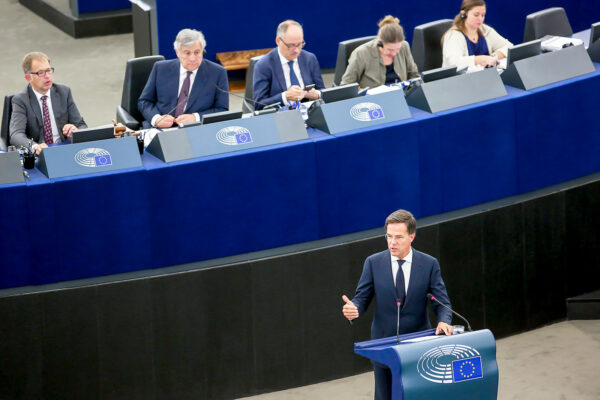
Parliamentary elections aren’t due in the Netherlands until March 2021, but now that the worst of the coronavirus pandemic appears to be behind the country, parties are starting to jockey for advantage.
Inside the ruling coalition, the three smaller parties are struggling to emerge from Prime Minister Mark Rutte’s shadow, whose liberal VVD is up from 33 to a projected 42-46 out of 150 seats. Rutte is drawing support from both the center-right and the far right.
Left-wing parties can barely get one in three voters between them. The far right has yet to top 20 percent support. The more interesting developments are in the center, where two parties could nominate female candidates for prime minister.
Coalition
- Christian Union, the smallest governing party (5 seats, 6-8 in polls), has come out against expanding Lelystad Airport, a possible alternative to Schiphol, despite agreeing to this three years ago.
- Christian Union and the left-liberal D66 (19 seats, 10-12 in polls) now both oppose another government policy: biomass subsidies.
- D66 leader Rob Jetten is standing down in favor of Trade Minister Sigrid Kaag, an experienced diplomat who would be the party’s second female leader.
- Christian Democratic Appeal (19 seats, 13-15 in polls) could elect its first woman leader: Mona Keijzer, undersecretary for economic affairs and climate policy, is challenging Health Minister Hugo de Jonge for the leadership. De Jonge is a centrist who rules out cooperation with the far right. Keijzer is more folksy and argues the party shouldn’t limit itself to deals with the left.
Opposition
- Labor (9 seats, 12-16 in polls) has reelected Lodewijk Asscher, a former deputy prime minister, as leader. The party did well in European elections in 2019, when it was led by European Commissioner Frans Timmermans.
- A proposal to merge the Labor Party and Greens (14 seats, 13-15 in polls) has been shot down by leaders of both parties.
- Socialist Party (14 seats, 8-10 in polls) has reelected Lilian Marijnissen as leader, who no longer rules out forming a government with the right. The Socialists previously put purity over pragmatism and lost voters to the center-left.
- Forum for Democracy (2 seats, 10-14 in polls) has lost popularity due to infighting and the conspiratorial, anti-vax statements of its leader, Thierry Baudet, but it doesn’t appear to have benefited the Netherlands’ other far-right party, Geert Wilders’ Freedom Party (20 seats, 13-17 in polls). Instead, right-wing voters are returning to Rutte’s VVD.
